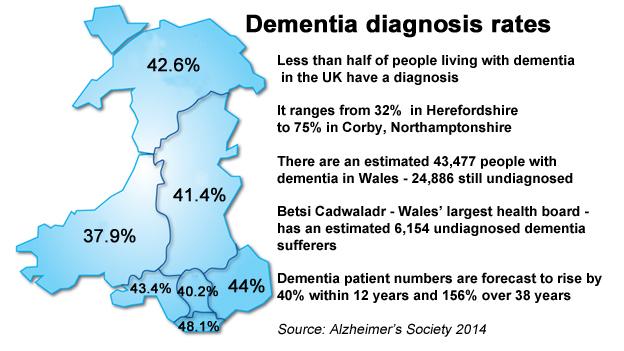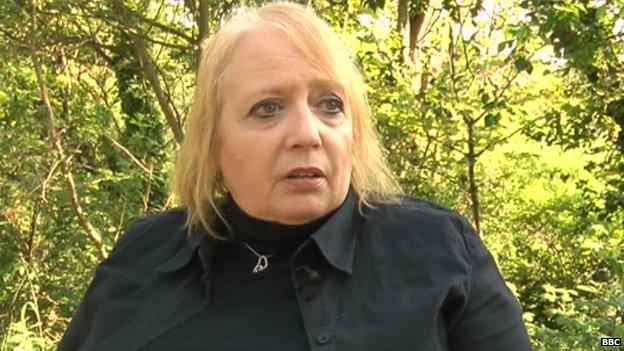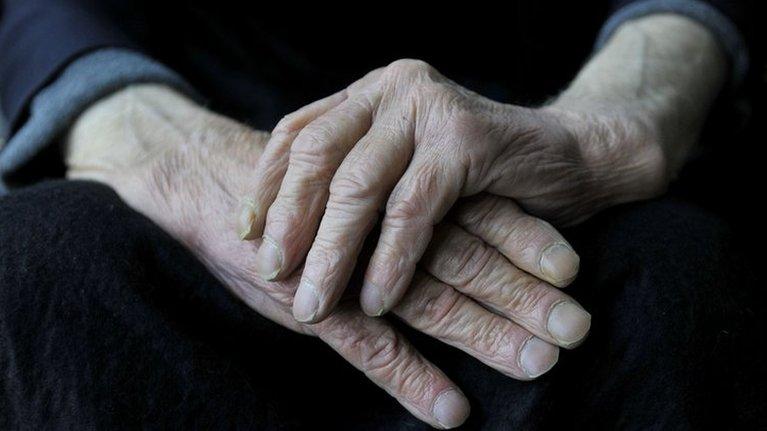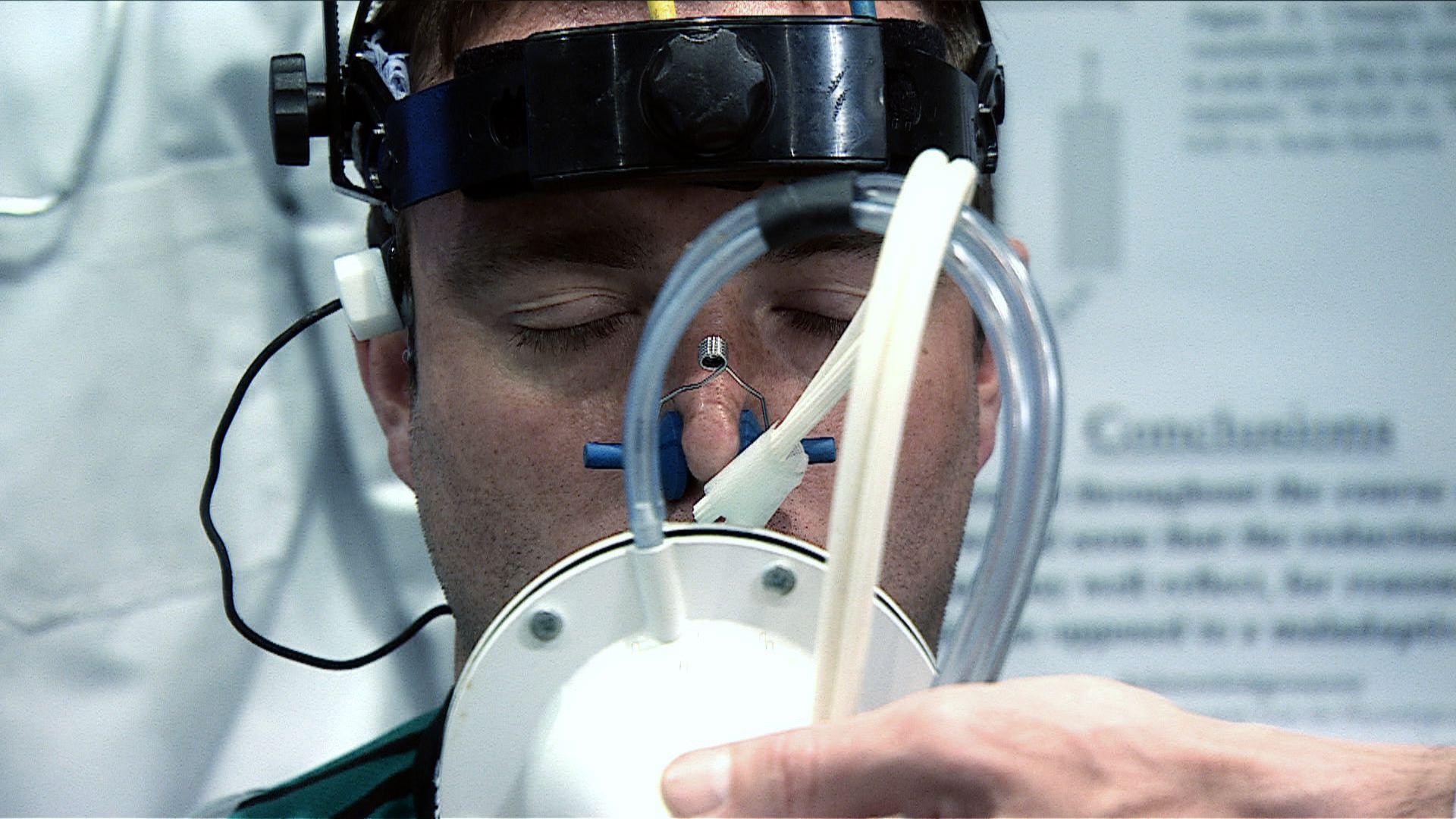Push to spot 50% of dementia cases in Wales by 2016
- Published
Doctors will be expected to diagnose half of those patients in Wales who have dementia by next year.
The Alzheimer's Society said it was "disgraceful" that 25,000 people are living with the disease without it being clinically confirmed.
The diagnosis rate in Wales is behind both England and Northern Ireland.
Health Minister Mark Drakeford said: "All those who work in our health service will need to become more aware of the disease".
He wants health boards to work towards a diagnosis rate of at least 50% by 2016.

The diagnosis rates vary between Wales and other nations - and within Wales
The Welsh diagnosis rate is 42.8%, compared to 48% in England and 64.8% in Northern Ireland.
Within Wales it ranges from 37.9% in the Hywel Dda health board area up to nearly half in Cardiff and Vale.
In 2014, there were an estimated 43,477 people in Wales living with dementia - that number is expected to increase to more than 55,000 by 2021 as the population gets older.
Mr Drakeford said: "Our society will need to change to meet this demand, becoming more aware of the signs and symptoms of dementia."
Backing this up is a £1m plan, which includes:
Recruitment of an additional 32 support workers
An extra four nurses to visit the 675 residential and nursing homes in Wales to train staff in spotting signs of dementia.
Funding for three years to help increase the number of people trained as "dementia friends" who can spot signs of the disease and help sufferers. There are currently more than 9,800 dementia friends in Wales and 400 dementia champions.
More GP surgeries are also to be encouraged to take up training and put their own dementia action plans in place.
An all-party parliamentary group on dementia in 2012 , externalsaid it was "shocking" that fewer than half of people with dementia have a formal diagnosis and it called for better training to spot the signs.
But diagnosis can be complicated, with different causes. There is not a single accurate test, while public understanding is poor.
Sue Phelps, director of Alzheimer's Society in Wales said it was committed to working with others to help drive diagnosis rates up.
"Over 45,000 people in Wales face daily challenges whilst living with dementia," she said.
"It's disgraceful to think more than half of them have an added fight, to get a diagnosis. The fact that people are left struggling with uncertainty and no support is simply unacceptable."
The society is trying to gather people's experiences of being diagnosed , externalbecause there is no published evidence about why diagnosis rates in Wales are so low.
- Published2 July 2014

- Published19 June 2014

- Published2 June 2014

- Published18 November 2014
